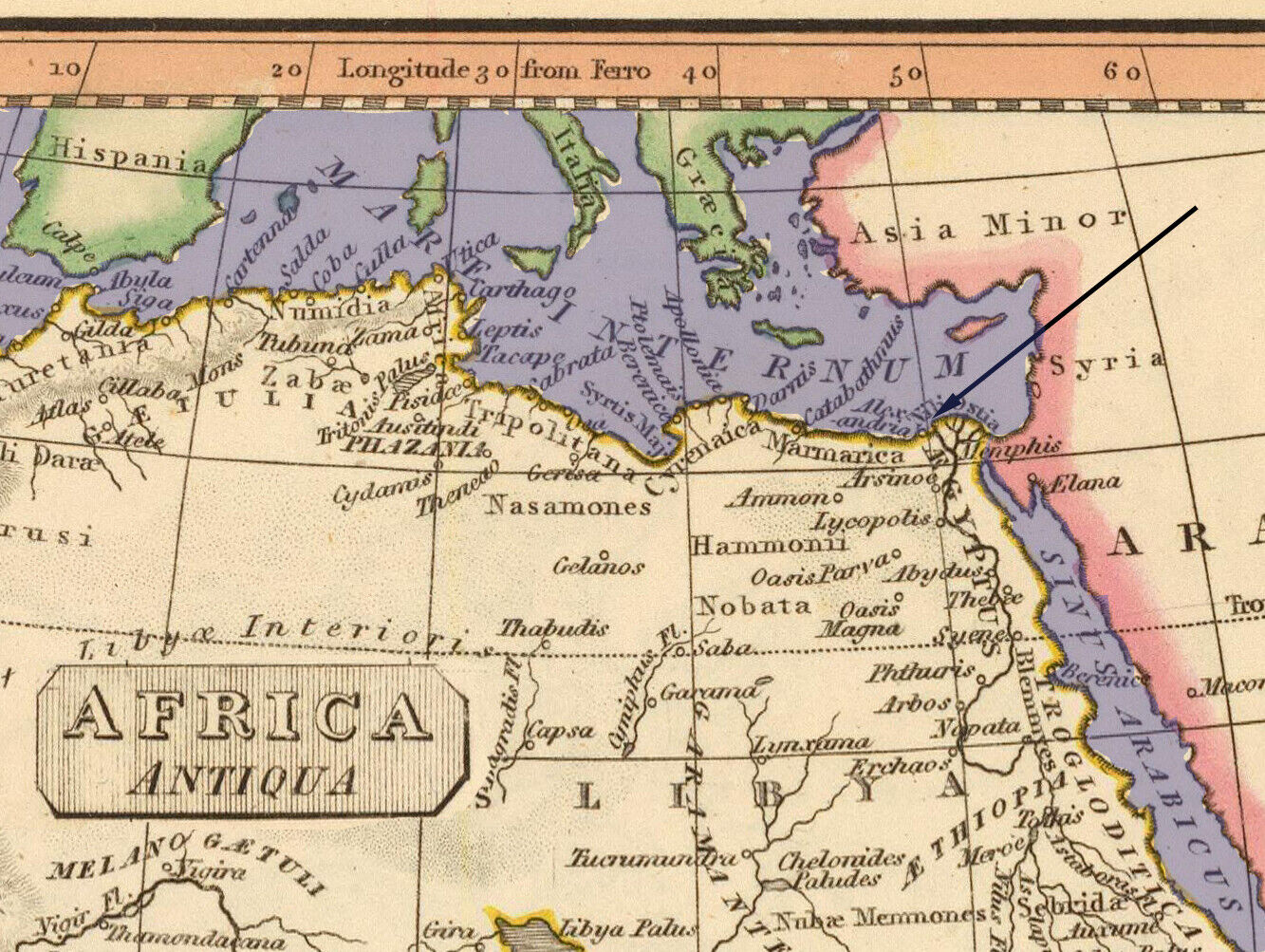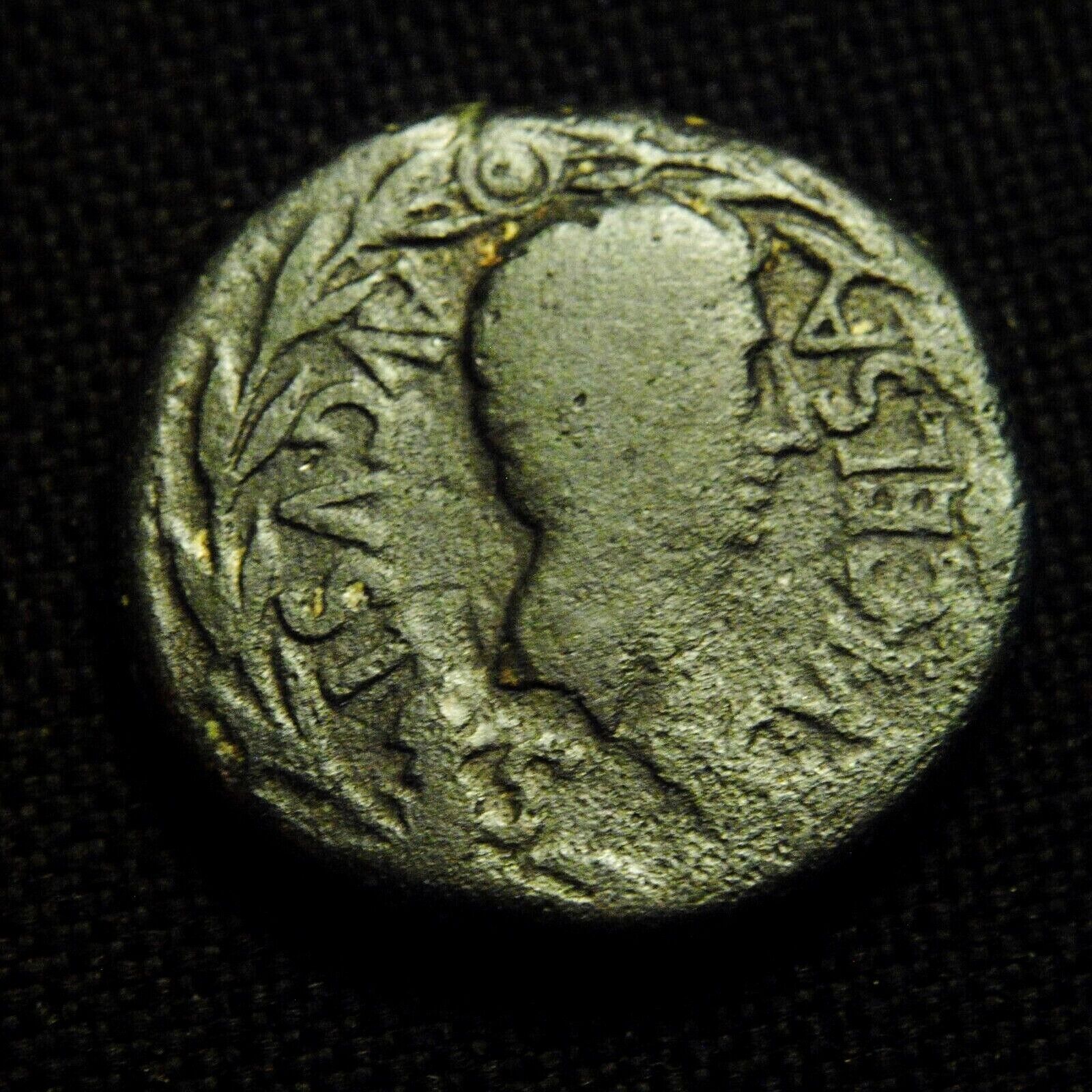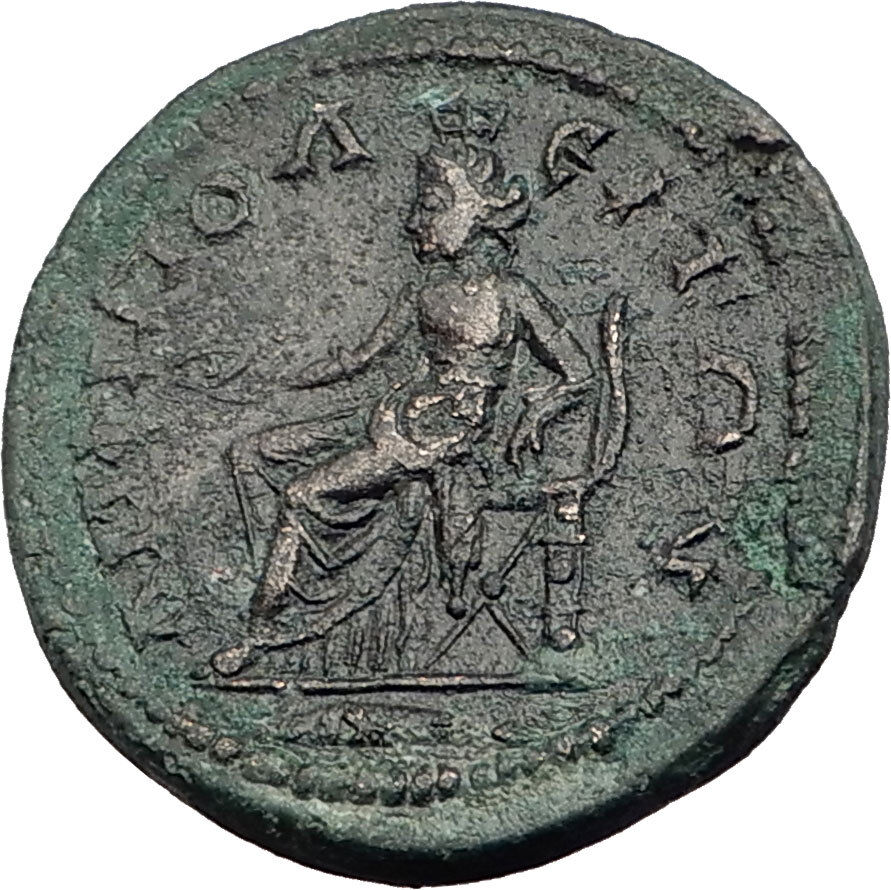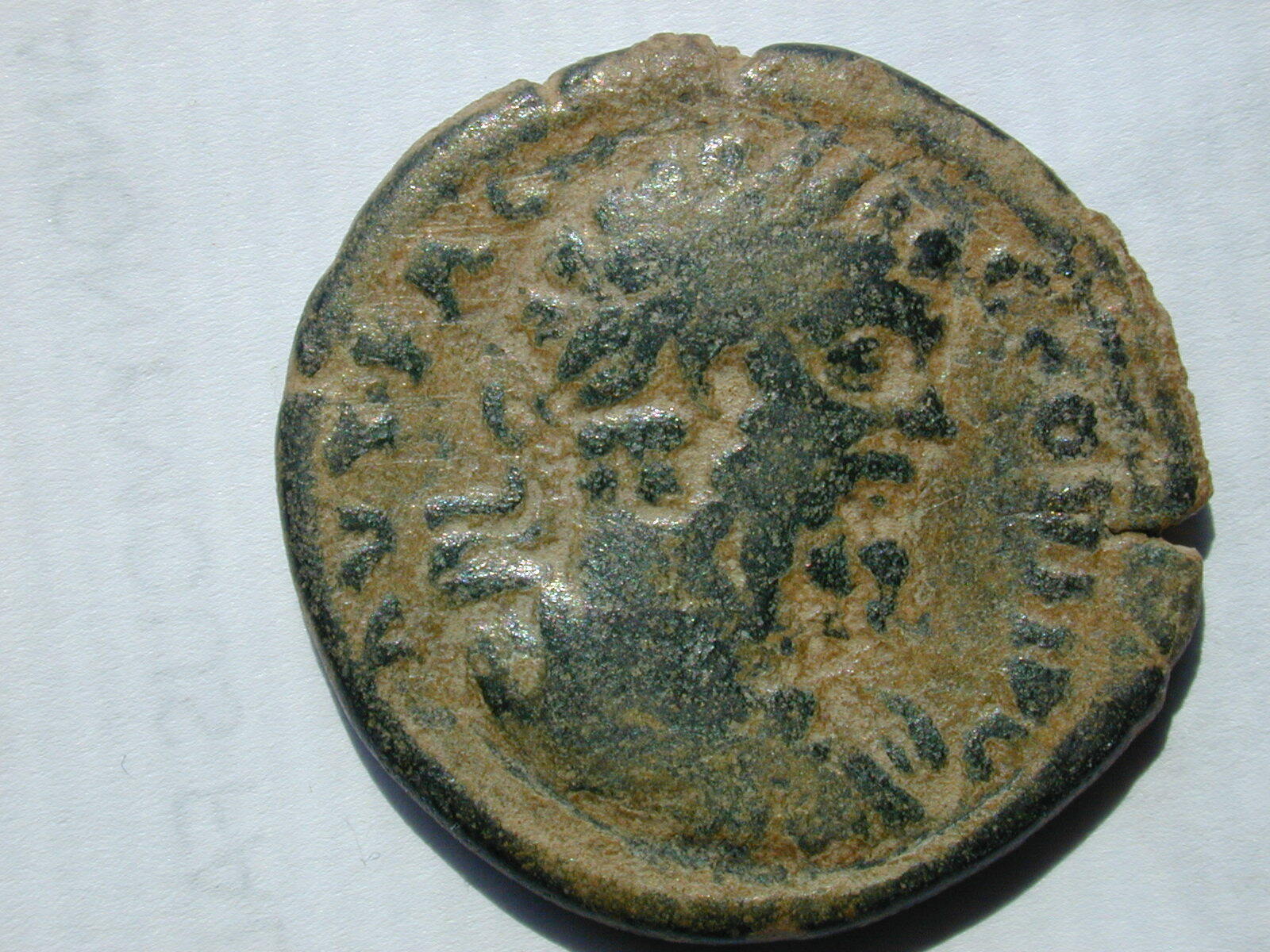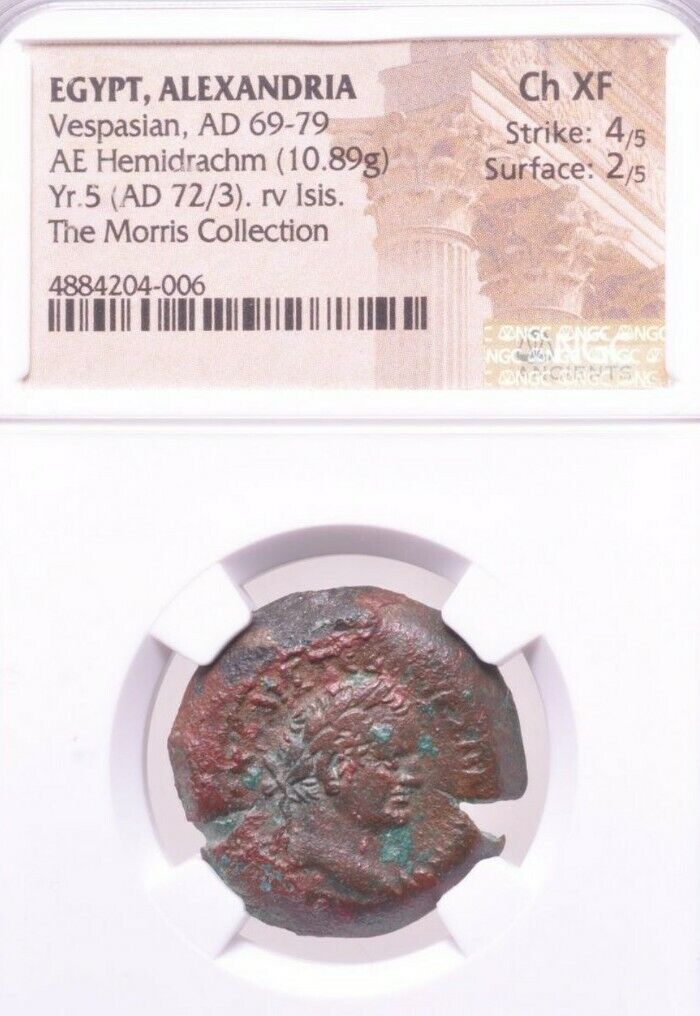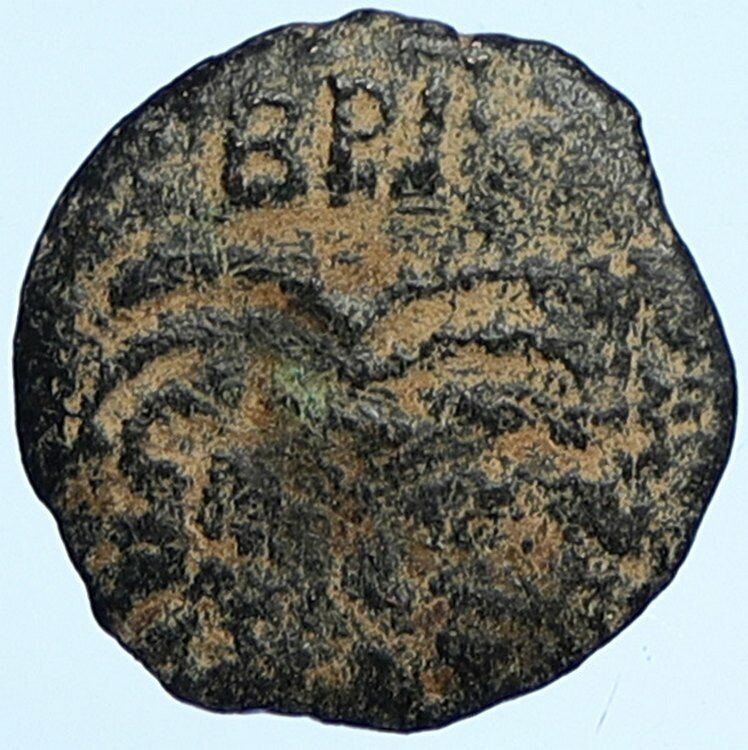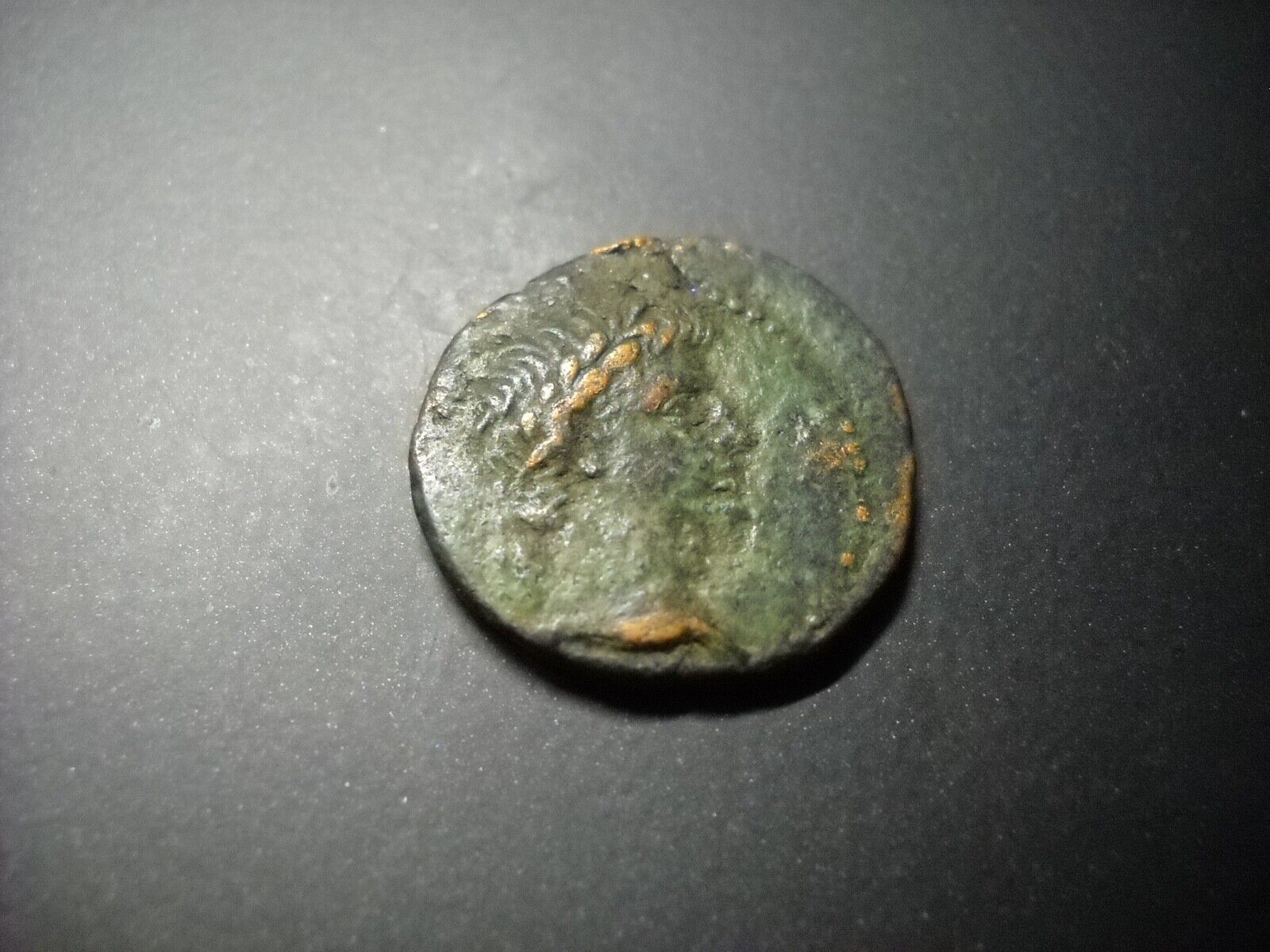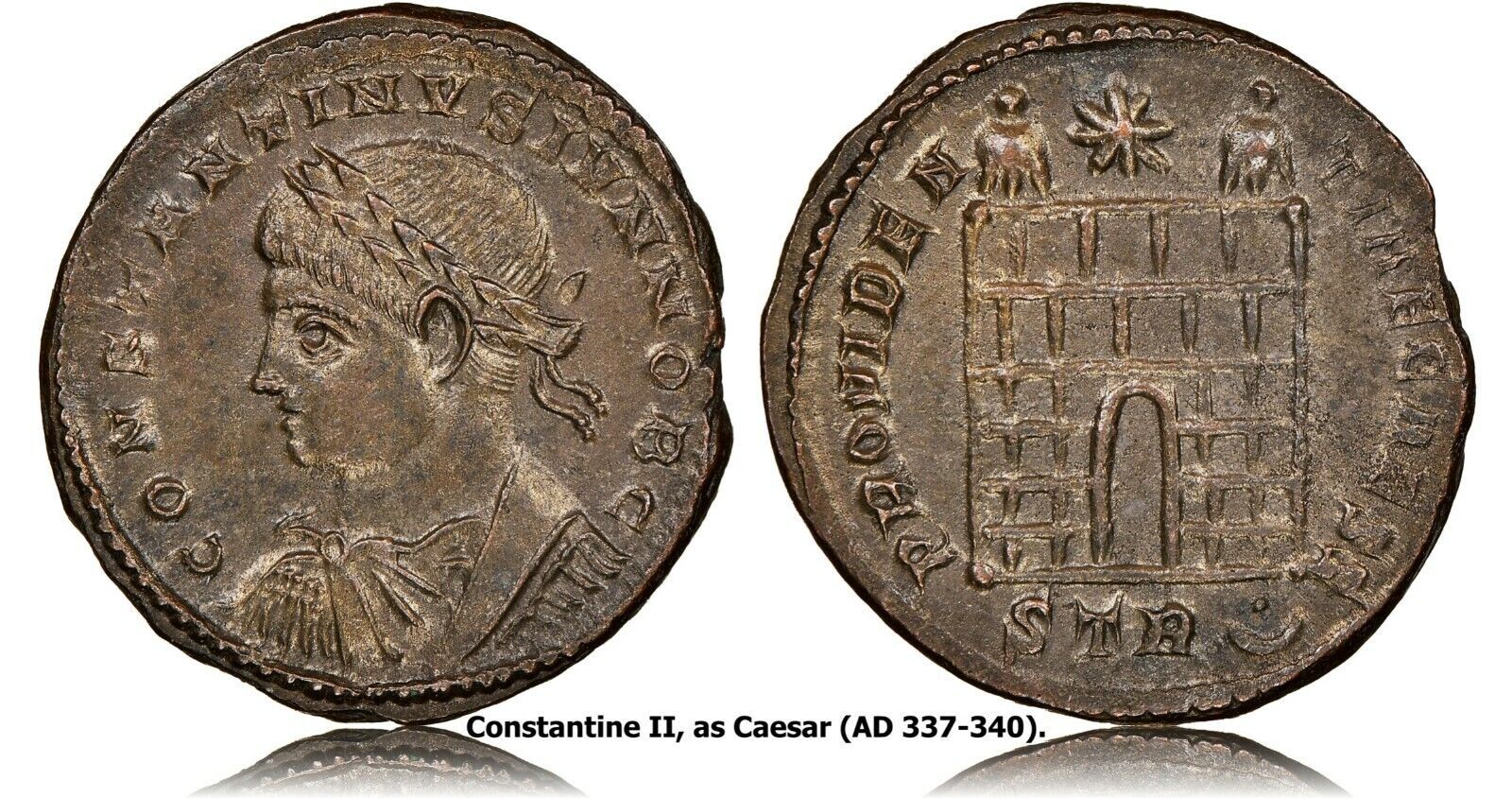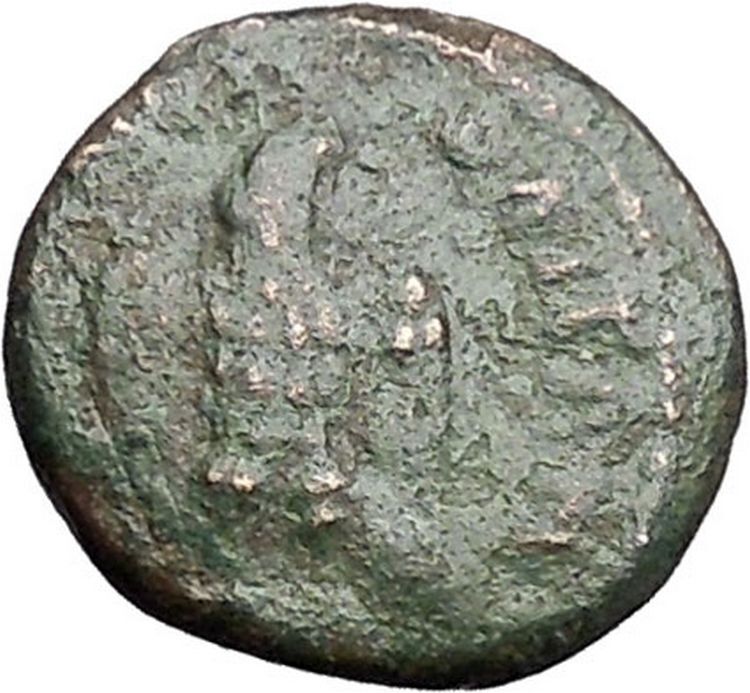-40%
Archaios | Egypt Alexandria Diocletian AE Tetradrachm / Elpis Stand Left | i38.4
$ 22.17
- Description
- Size Guide
Description
Archaios Numismatics__________________________________________
Description:
Roman Bronze AE Tetradrachm, from Alexandria Egypt of Emperor Diocletian Dated Alexandrian Year 1 (284/285 AD).
Obverse:
Laureate, draped, and cuirassed bust of Emperor Right.
Reverse:
Elpis standing left, holding flower, and raising hem of robe; Date LA in left field (RY 1).
Mint:
Alexandria, Egypt
Size:
20 mm
Weight:
7.00 g
Ref:
SNG Cop 968; Milne:4750; Emmett 4046
Condition:
gF
As always, Please use the Pictures as your judge as grading is subjective.
Note:
Alexandria
was an ancient city of Egypt whose history dates back to the city's founding, by Alexander the Great, in 331 BC. After its foundation, Alexandria became the seat of the Ptolemaic Kingdom, and quickly grew to be one of the greatest cities of the Hellenistic world. Only Rome, which gained control of Egypt in 30 BC, eclipsed Alexandria in size and wealth.
City of Learning - Library of Alexandria
Alexander and then the Ptolemies fostered the development of the Library of Alexandria and associated Musaeum into a renowned center for Hellenistic learning. The city and its famous library and the Musaeum fostered the development of such notable individuals as geometry and number-theorist
Euclid
; the astronomer
Hipparchus
; and
Eratosthenes
, known for calculating the Earth's circumference and for his algorithm for finding prime numbers, who became head librarian.
Strabo lists Alexandria, with Tarsus and Athens, among the learned cities of the world, observing also that Alexandria both admits foreign scholars and sends its natives abroad for further education.
Egypt under the Romans
From the time of annexation and onwards, Alexandria seemed to have regained its old prosperity, commanding, as it did, an important granary of Rome. The city passed formally under Roman jurisdiction in 80 BC, according to the will of Ptolemy Alexander but only after it had been under Roman influence for more than a hundred years. Many early emperors of Rome played parts in the early history of Alexandria -- Julius Caesar dallied with Cleopatra in Alexandria in 47 BC and was besieged in the city by Cleopatra's brother. Later Mark Antony came but was defeated in Alexandria at the Battle of Actium after which Octavian took Egypt as personal property of the emperor.
The AE / Billon Tetradrachm Coinage
In
A.D. 19
the last-named emperor
revived the Ptolemaic tetradrachm
, the issue of which had been in abeyance since Cleopatra’s death. It was struck not in debased AR, but
in the mixture of AR and Æ known as billon
and it was tariffed as
roughly equivalent to the Roman denarius.
The reform was to facilitate commercial intercourse between Egypt and the rest of the Empire. At first the billon tetradrachm weighed over 200 grains and contained a fair proportion of AR.
Debasement of the AR quickly set in and Under Commodus a percentage of AR was reduced to 10
. The next great shrinkage began under Trebonianus Gallus, and continued till in the
time of Diocletian
when a tetradrachm weighed little more than one-half of what it had originally and the proportion of
AR sank as low as 2 percent
. The earlier emperors had all struck coins in Æ, pieces of very large module being introduced by Nero and minted in enormous quantities by Trajan, Hadrian, and Pius. Under Commodus the flow was suddenly checked, while under the later emperors Æ is hardly known at all.
The tetradrachms and
the imperial Æ always have the imperial portrait on the obverse and they were doubtless minted at Alexandreia
, which was at once the seat of the government and the busiest commercial centre in the whole of the Roman world. But the
name of the city never appears except on certain alliance-coins struck at Ephesus under Gordian III
.
While the
earliest coins under Augustus were undated
(Like the Æ of Cleopatra on which it was modelled), but later a resumption of the Ptolemaic fashion of
placing upon the coins the regnal year of the monarch in whose name they were issued
. This practice continued to be observed till the very close of the series, and, since the Alexandrian year commenced on August 29, the dates and corresponding inscriptions are often useful in elucidating obscure points of Roman imperial chronology.
As a rule, the year is indicated by a numeral letter or letters preceded by the symbol L (meaning Year).
Some Excerpts From Head, Hist. Num., and Wikipedia, the Free Encyclopedia
We Thank You for stopping in and taking time to look at and bid on our listings.
Good Luck Bidding or Buying !
We encourage you to
click the "
See other items
" link
above in the "
Seller Information
" area of the listing as well to check out our other items posted. We have a variety of great classical and other ancient numismatic items available.
We will be regularly continuing to post for sale and auction a
wide variety of Ancient Roman, Greek, and Eastern coins as well as Medieval, Byzantine, and some Modern coins as well.
We can
combine shipping
if buying or winning multiple items. Just contact us before you pay and let us know and we will gladly send an updated invoice with the combined shipping amount.
You can also follow us to be notified when new listings are posted.
With over 20 years in the numismatics hobby
we continue to revel in the excitement that comes from holding each new small piece of history in our hands.
We enjoy the enduring sense of history both of the prior uses and users as well as the creativity and necessity that surround the time and place at which these coins were minted and used in circulation.
Our aim is to cater not just to the high end collector but also to the hobbyist and the newly initiated and those on a limited budget.
Everyone starts the hobby somewhere and where we can share our knowledge to help inform or jumpstart your collecting pleasure we will aim to do so.
We want you to love every purchase you make with us and
we always stand by the quality and authenticity of all the coins we are selling
.




